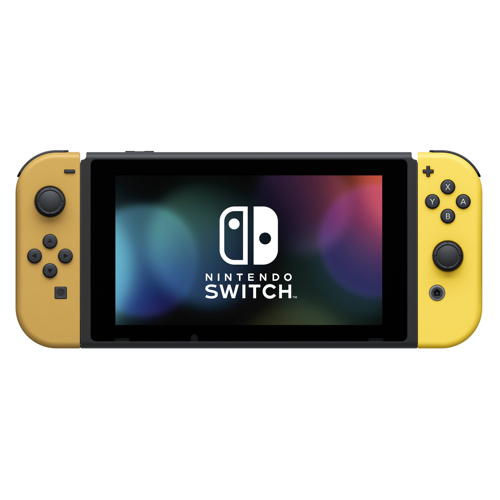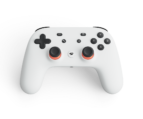Nintendo 'Not Exactly Satisfied' with Numerous Successes
by on 12th Feb 2019 in News

Ever one to be modest about its achievements, Nintendo has revealed that the huge success of many of its current first-party IP titles has left the company longing for more.
As revealed in a new investor-facing Q&A report, the company is looking to expand the reach of its games and connect with more new users. Any contemporary game company is likely to be pursuing those goals, of course. But recent months have seen new Pokémon titles 'Let’s Go! Pikachu' and 'Let’s Go! Eevee' sell extremely well, perhaps in part thanks to the fortunes of mobile AR sensation Pokémon Go, which has likely done plenty to bring exposure to the brand. The pair of games – each a variant of the same base title – sold three million units in their opening week. As Gematsu points out, that's the most successful Switch game launch yet.
Meanwhile, Super Smart Bros. Ultimate, Mario Kart 8 Deluxe, and New Super Mario Bros. U Deluxe continue to beguile consumers. Indeed, all three are in the top 10 of this week's UK all-formats sales charts for physically released games, as compiled by GFK. Across the entire top 40 there are nine Nintendo titles.
That, though, is not enough for Satoru Shibata, Nintendo director and senior executive officer.
"We feel very fortunate that the initial sales pace for Super Mario Party, Pokémon: Let's Go, Pikachu!/Pokémon: Let's Go, Eevee!, and Super Smash Bros. Ultimate has been so strong", Shibata asserted. "However, that doesn't exactly mean we're satisfied. Before their release, we challenged ourselves to see how we could expand our consumer base with each of these titles.
"For Super Mario Party, the question was 'How could we reach people other than children and parents?'. With Pokémon: Let's Go, Pikachu!/Pokémon: Let's Go, Eevee!, we asked 'How could we reach people who had played Pokémon GO, for example, but never played Nintendo Switch?'. With Super Smash Bros. Ultimate, we asked 'How could we reach not only fans of the Super Smash Bros. series, but also those who had never played it before?'. If you look at the demographics of the consumers who purchased each of these titles, Iʼm not convinced weʼve completely overcome these challenges yet."
It would appear market saturation for Nintendo doesn't stop with its devoted and core markets.
"Our aims are to keep working on [those titles] this year, to expand sales of these titles to new consumer demographics, and to keep selling these games for a long time, which is one of our strengths", Shibata concluded.

The dual release of Pokémon Let's Go Eevee! and Let's Go Pikachu! saw three million units shift in a single week. But that's not enough for Nintendo.
Of course, all of this comes against a backdrop of Nintendo revising down its forecast for Switch sales; the Japanese gaming giant had put forward a self-imposed goal of selling 20 million units through the recently concluded fiscal year. Despite Switch selling 9.41 million consoles in the period from October 2018 to December the same year (as reported by The Verge), Nintendo recently moved to predict a fiscal year total of 17 million sales in the period. That trigged a 9.3% drop in Nintendo's share price at the beginning of this month, as detailed by the Financial Times.
Inevitably, that hardware revision came up in the investor Q&A.
"Despite having been able to sell a fairly large volume of hardware during the holiday season, it is true that we now do not anticipate reaching the forecasted 12-month sales volume set at the beginning of this fiscal year", confirmed Nintendo president and representative director, Shuntaro Furukawa. "As we look back so far (for this fiscal year), we now evaluate that our efforts to fully convey the appeal of Nintendo Switch hardware and software to the number of new consumers we originally hoped to reach were insufficient.
"And from the viewpoint of our full-year unit sales forecast for this fiscal year, while we expected that releasing titles during the holiday season would help to increase sales, the year-on-year sales increase during the first half of the fiscal year (April to September) turned out not big enough, which also affected the revision of the unit forecast, as we look back now.
"We will talk about the next fiscal year in more detail at a later time; but basically we want to further increase both our hardware and software unit sales more than this fiscal year. We want to further enrich our software lineup and convey its appeal to consumers, so that they decide this (calendar) year they would buy Nintendo Switch."
Nintendo has felt plenty of ups and downs over its lifetime, of course. That comes with it being a 129-year-old company. In recent years, we have seen the wild popularity of the Wii followed by disappointing Wii U sales, which preceded the Switch returning the company to the fore. A sales forecast revision alone is probably not enough to trouble the beloved 'Nindie' quite yet.







Follow TheGamingEconomy